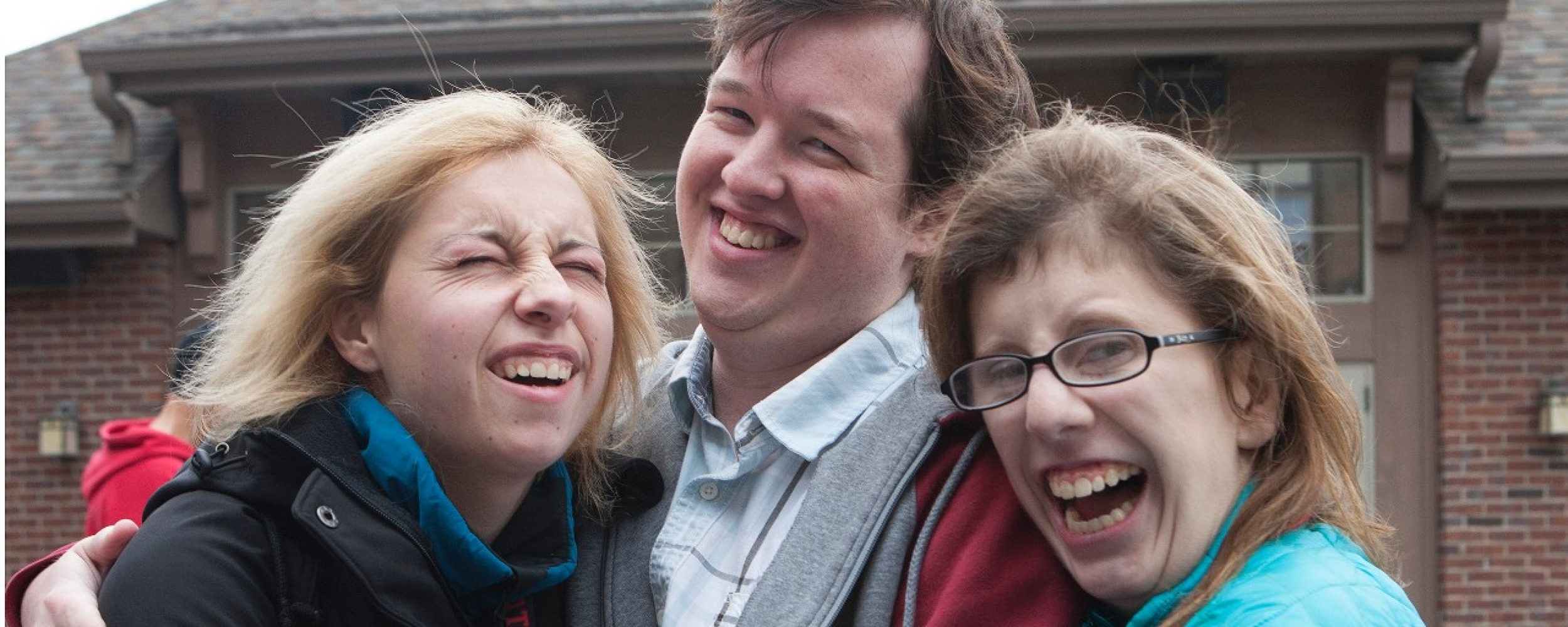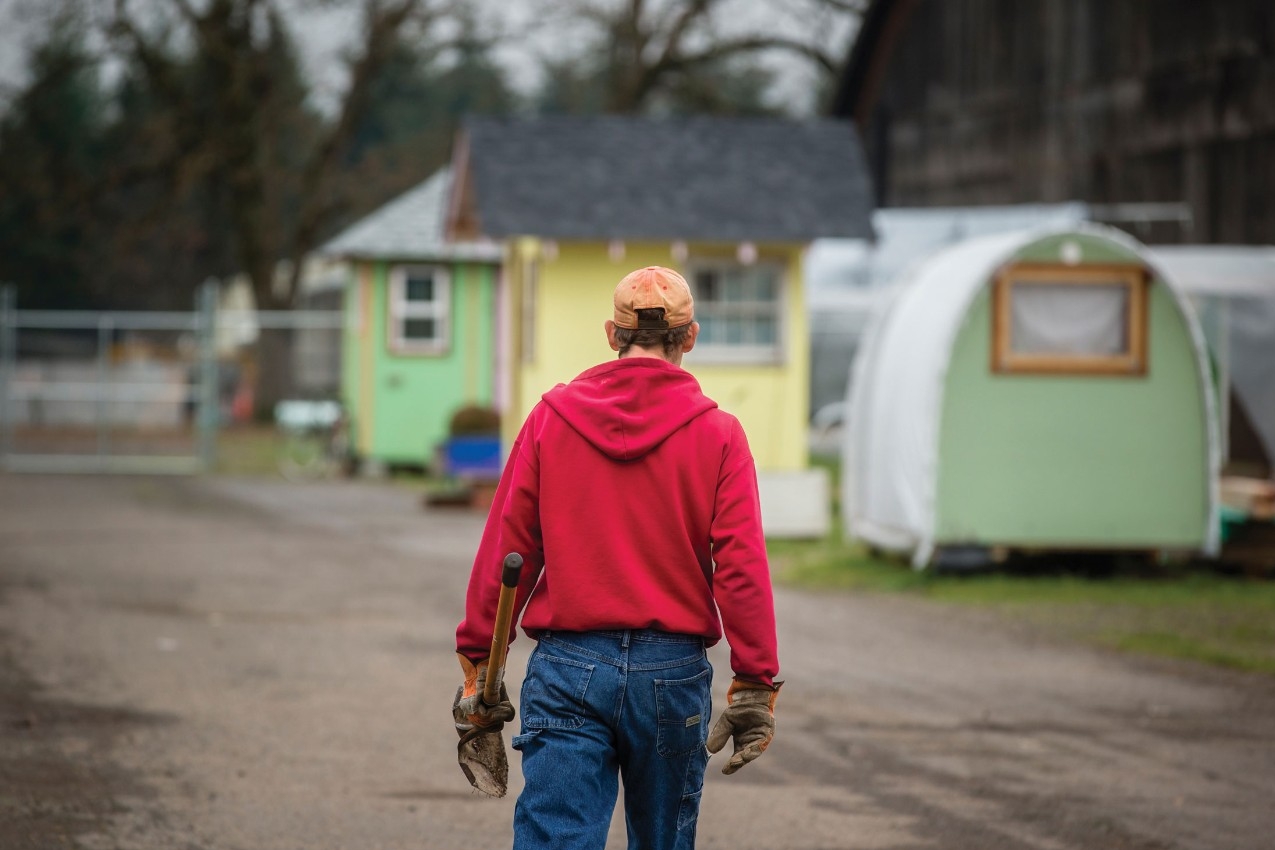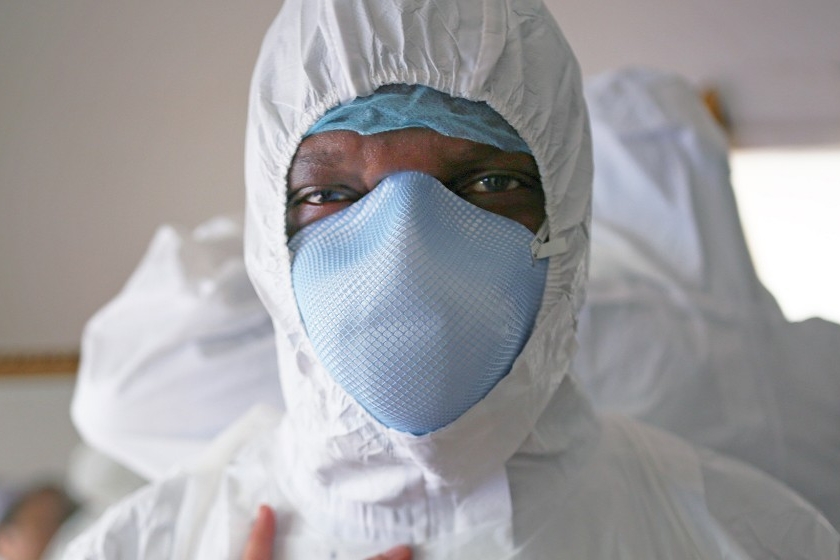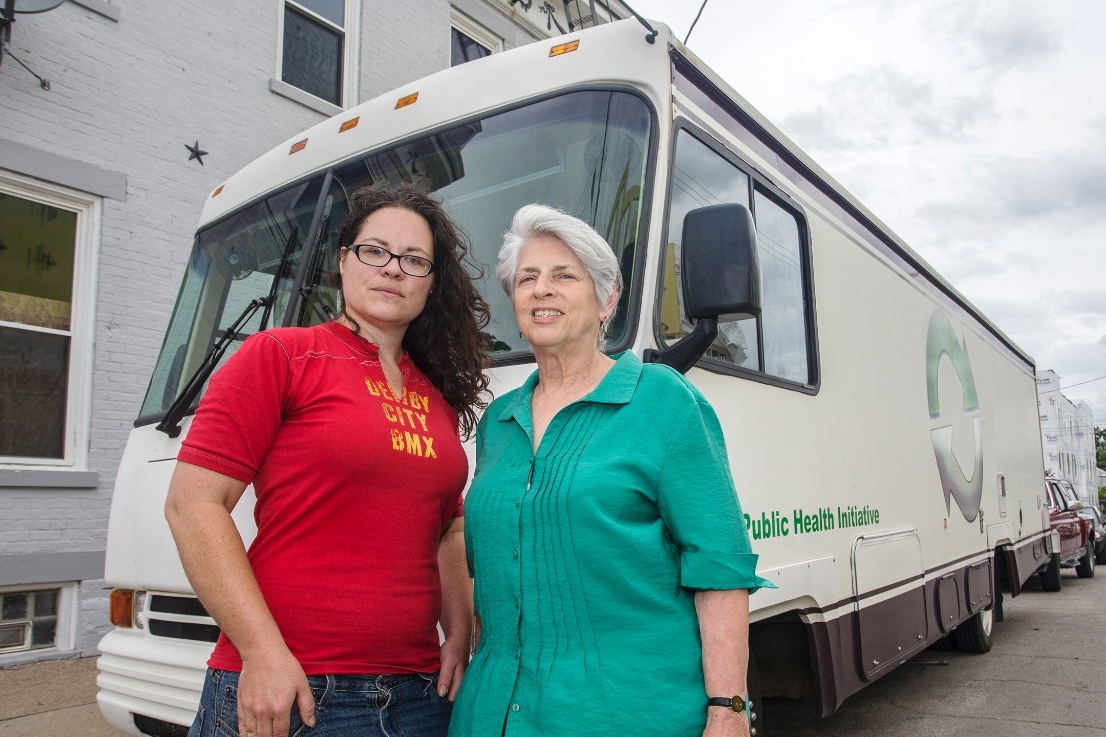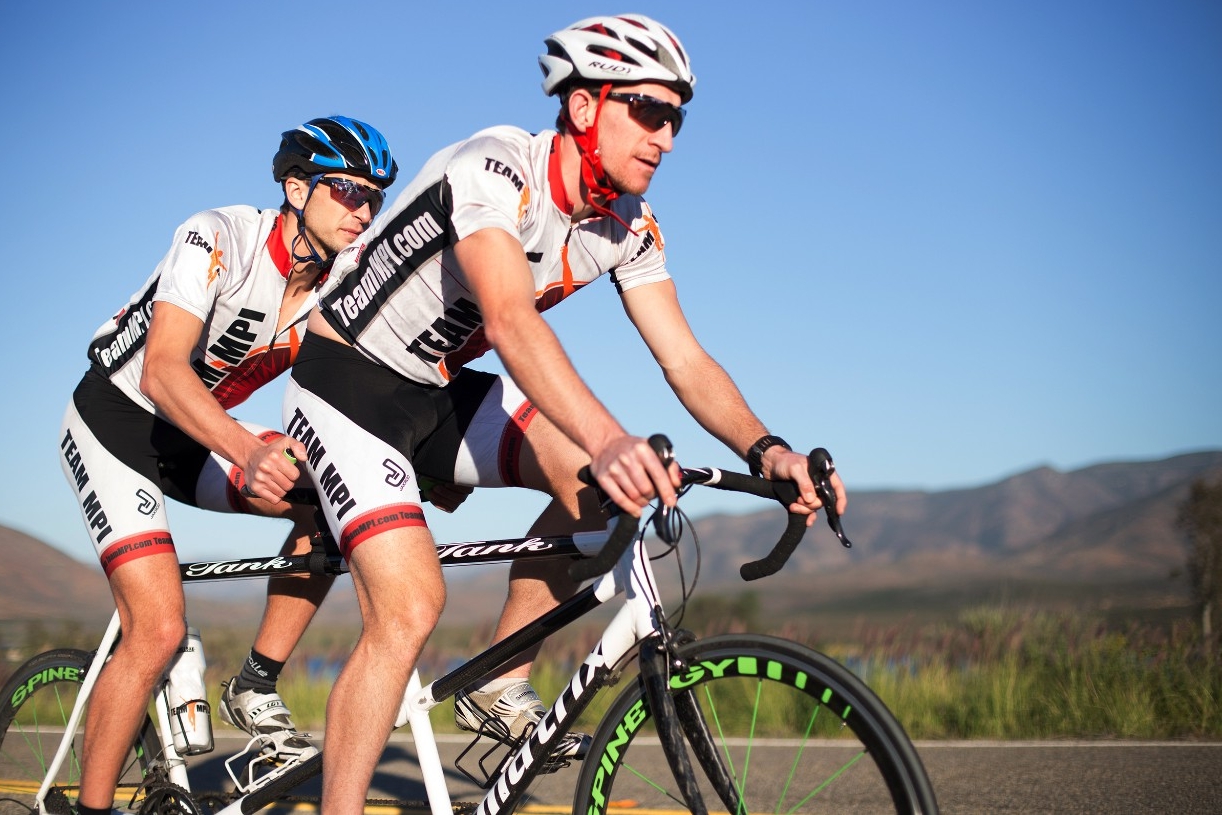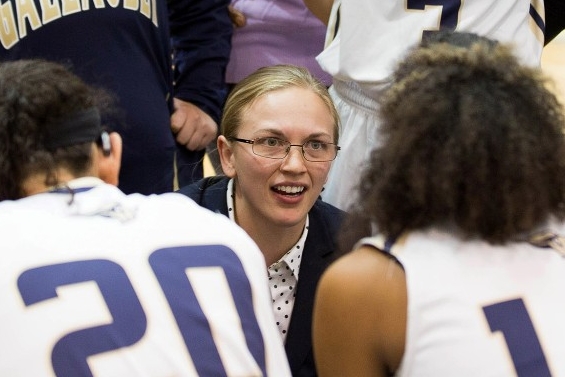No limits
Students with intellectual disabilities get a chance at the full college experience at UC

Dave and Suzanne Stein never dreamed their son, who has autism, would have the opportunity to go to college — let alone live there or get a scholarship.
But that is exactly what Dustin Stein is doing as he enters his second year at UC this fall. He and 34 others with mild to moderate intellectual disabilities are enrolled in UC’s Transition and Access Program (TAP) in the College of Education, Criminal Justice, and Human Services (CECH). They also live in a community together at the TAP House in Stratford Heights, the residential complex that sits just across Clifton Avenue and steps away from campus.
“We didn’t know if he would be able to attend a typical college when he was young,” says Dave Stein, DAAP ’85. “We held out hope for the longest time. UC having this program shows the compassion and acceptance the university has toward special needs students. A lot of special needs parents are really just looking for acceptance of their children.”
UC went beyond just simple acceptance, however, as Dustin is also on a scholarship. Because the Steins are both Cincinnati grads, the family applied for the UC Alumni Association’s Christos Demakes Legacy Scholarship and were thrilled when Dustin was selected. The joy they felt then was similar to the feeling in 2013 when Dustin’s classmates at Oak Hills High School selected him as homecoming king.
“For the alumni association to have recognized a TAP student, I just think that says a lot about the university,” says Suzanne Stein, Bus ’85. Still, dropping their only child off to college, she adds, was difficult emotionally, but they couldn’t be happier with how things are working out.
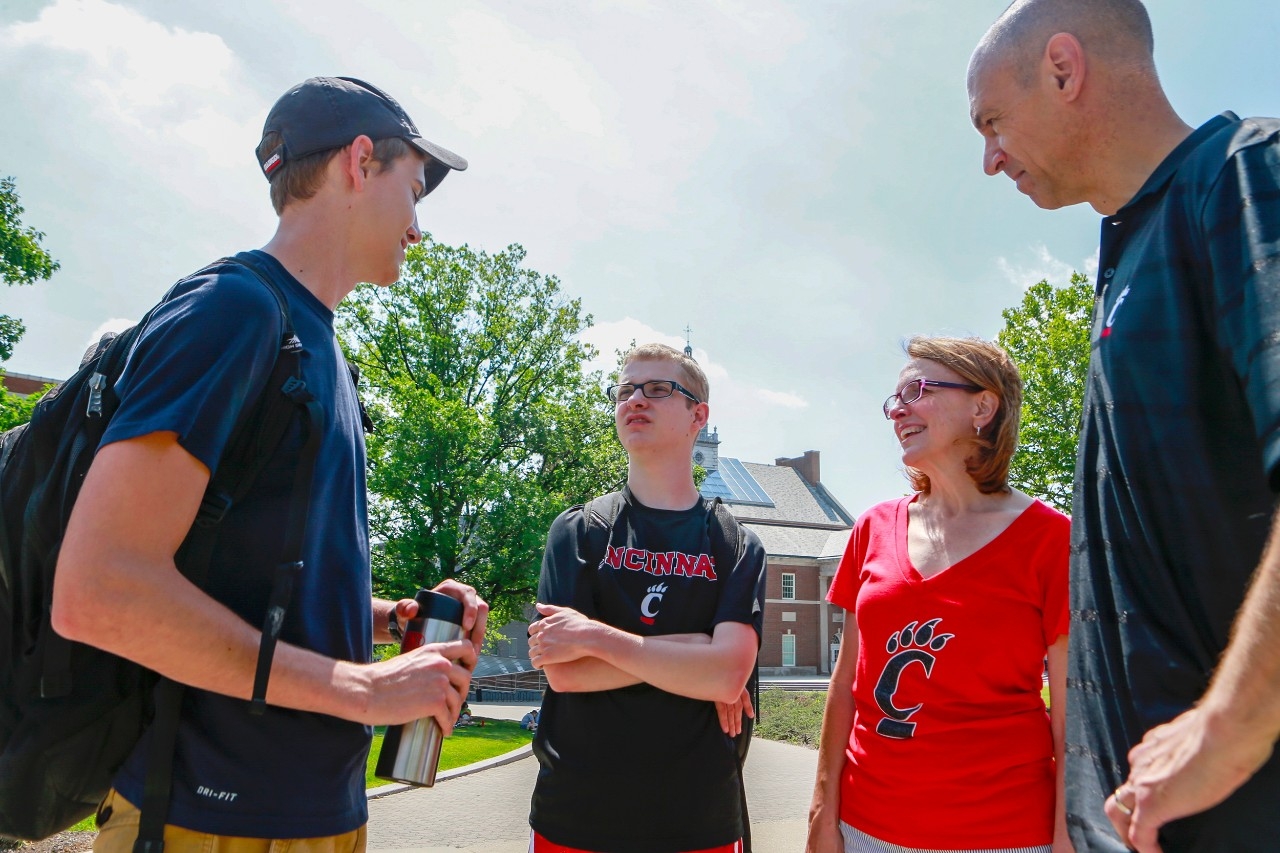
Autism hasn't stopped Dustin Stein from pursuing higher education thanks to UC's Transition and Access Program. Here, he and his parents, Dave and Susan Stein, pause to catch up with a family friend. photo/Joseph Fuqua II
“We didn’t realize how much we did for him until he came to UC, and one of the great benefits that we’ve seen from this program is just how far he has advanced on life skills,” she says. “Now, he’s getting up on his own, doing his own laundry, making his own choices, the list goes on and on.”
He even completed a summer internship as an office assistant on campus.
Sharing details of the condition he was diagnosed with at 5 years old, Dustin explains that autism at times makes communicating and forming relationships with other people difficult.
“Autism is like when you don’t understand certain things, like when a parent or a friend thinks something is funny when I don’t think it’s funny,” he says. “We don’t always have the same sense of humor.”
Dustin’s parents learned about TAP through his preschool teacher and UC grad Karen Troup, Ed ’81, M (Ed) ’00, who is now a CECH field service associate professor. Troup’s 31-year-old son, Steve Ober, also is in TAP as a lifelong learner. Troup was involved in UC’s early explorations of developing a program for high school graduates with cognitive disabilities.
“When you’re a parent and your child is about to exit high school and they have an intellectual disability, the opportunities go away,” says Troup. “Employment, friendships, recreation, they’re harder to obtain. The parent really has to figure out what is next for the child, so a program like TAP is a step to more independence.”
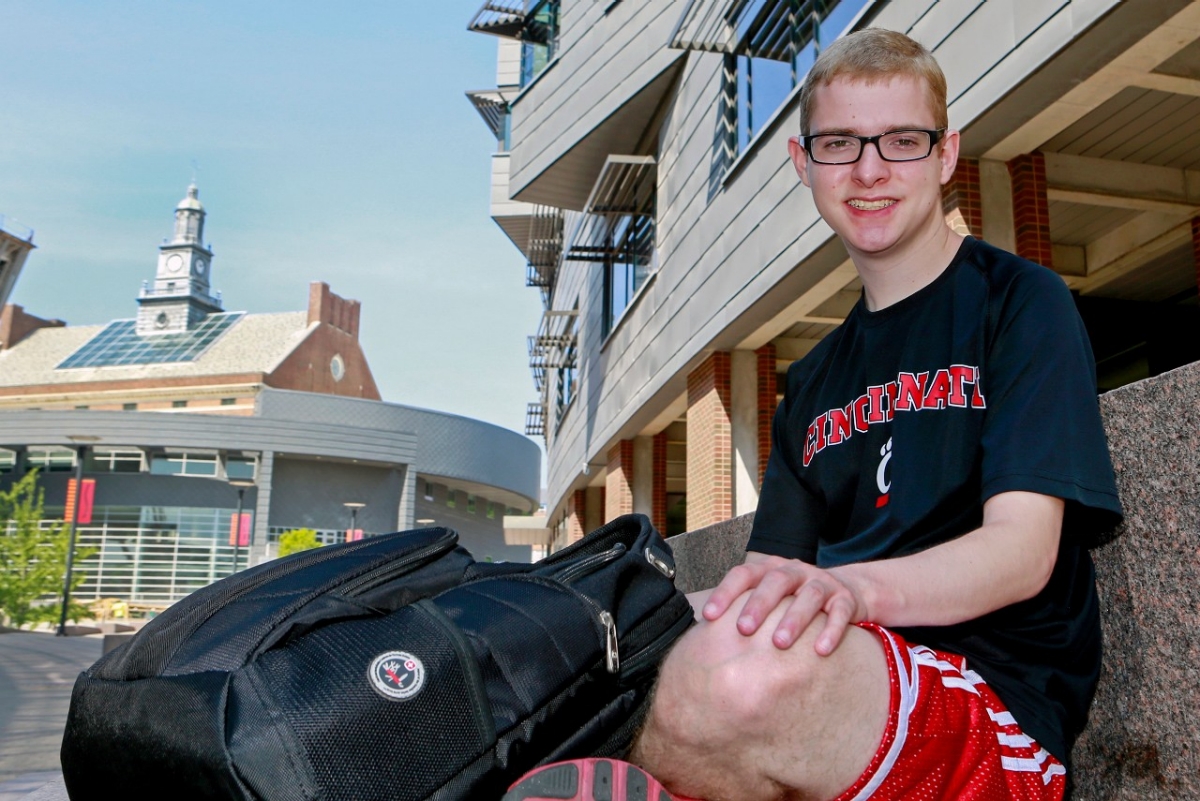
Dustin Stein relaxes along UC's MainStreet. Photo/Joseph Fuqua II
TAP, now in its third year, is a non-degree, four-year program that allows students who may not have had an opportunity to attend college to develop their independence while learning study skills, basic computing, time management, financial management as well as professional development. Course work is typically built from a mix of both TAP-based classes and select offerings to UC’s general student body.
“We want to prepare these students for careers, not just a job,” says Heidi Brett, TAP director.
The program started on campus with eight students in 2012, then UC opened the TAP House in Stratford Heights in 2013. TAP has grown to 35 students this fall, with the first cohort graduating in 2016. UC’s general-population students majoring in special education serve as mentors, job coaches and resident advisors (RAs) in the house. They also serve as student teachers who work with TAP students before and after they attend a traditional class.
“TAP students support our college mission in the belief that all students can learn,” Troup says. “With their presence on campus and their interaction with our CECH students working as job coaches and mentors, our typical students learn from our TAP students. It isn’t just that we’re doing something great for students with disabilities, they’re doing something great for us.”
Fourth-year special education major Kelsey McConnell served as an RA, job coach and teacher in the TAP House last year and remains an RA this fall. McConnell says it wasn’t until she lived in the TAP House that she found her true calling.
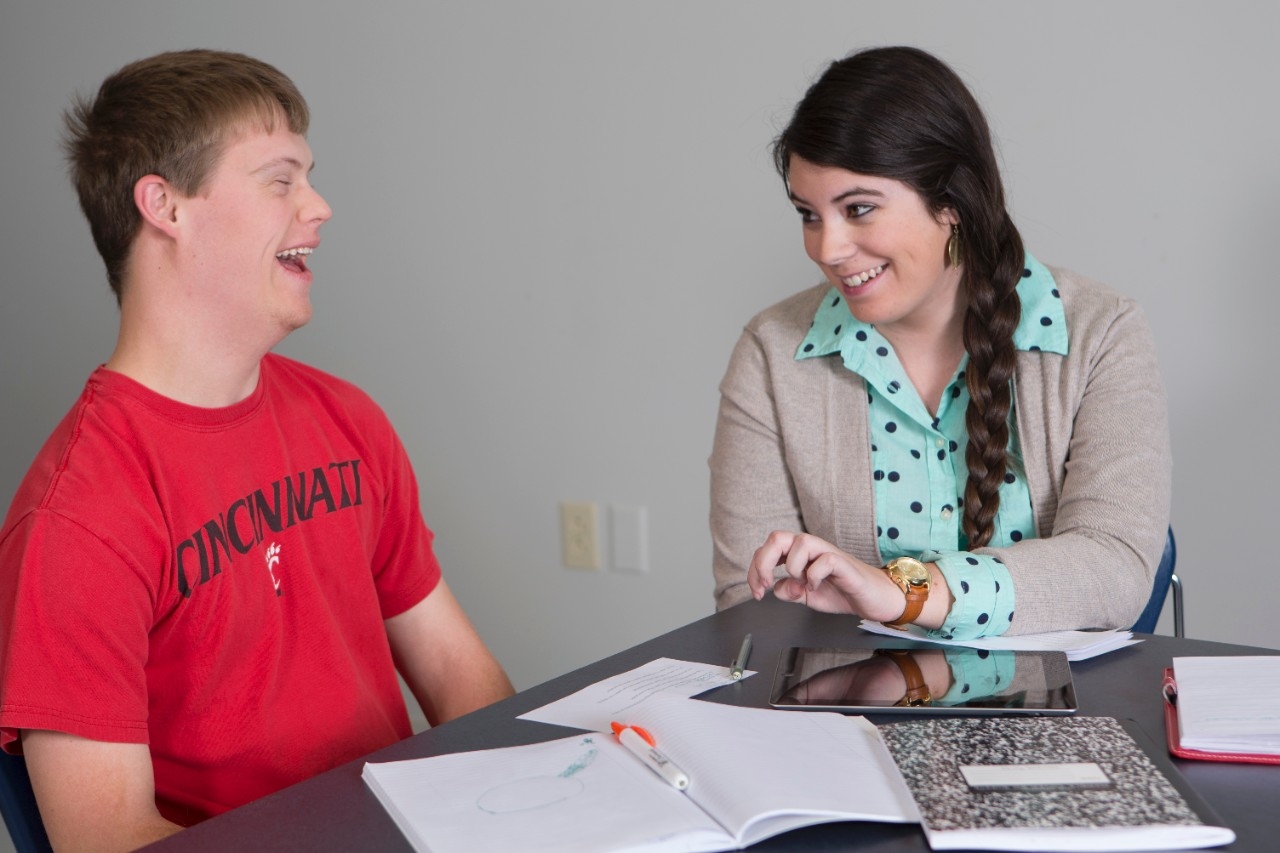
Danielle D'Arcy, a 2015 graduate who got a degree in communication sciences and disorders, worked with student Peter Merz while a student teacher in the TAP program. Photo/Lisa Ventre
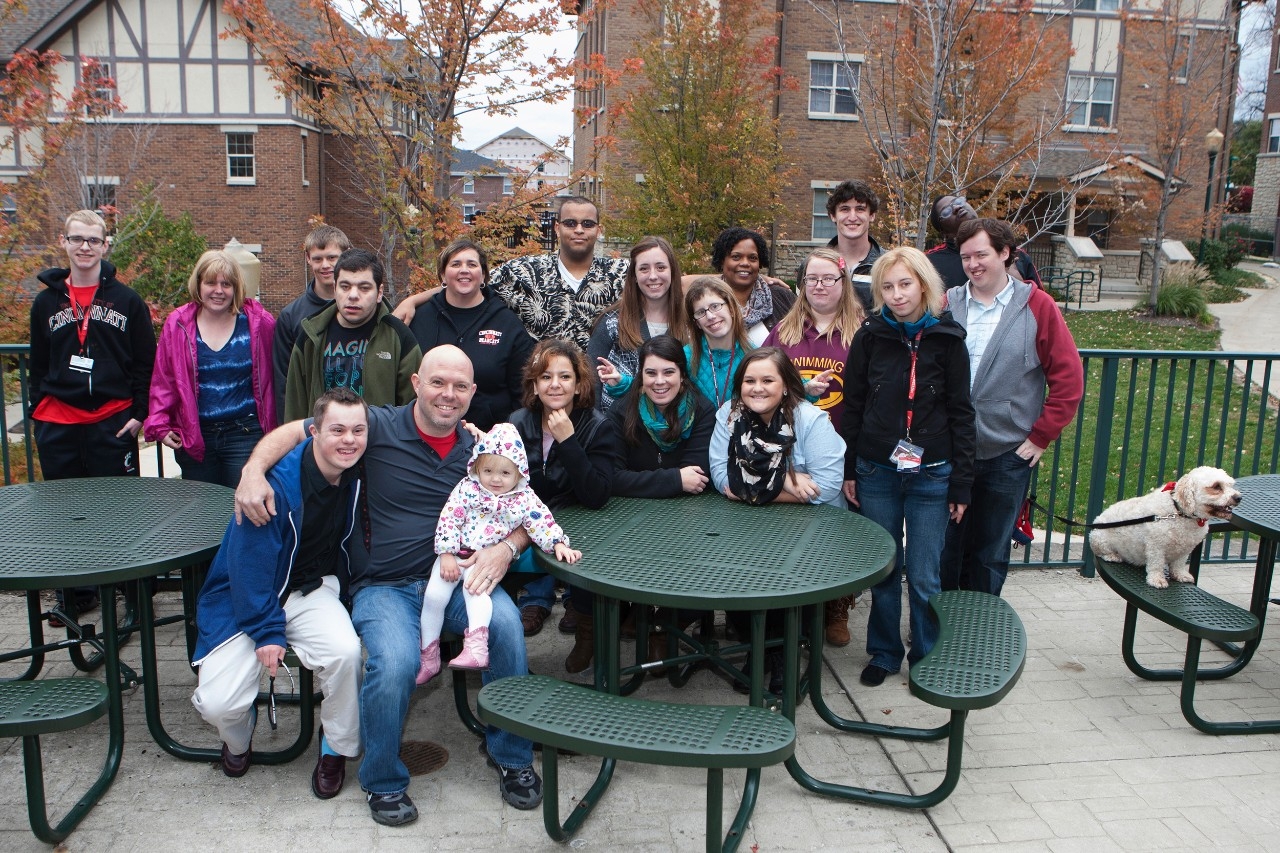
A group of students, staff and family members from UC's TAP program gathered for a picnic near the TAP House. Photo/Lisa Britton
“Coming into the college, I thought I wanted to teach in a classroom, but now after working in TAP, I’d rather work in a transitional setting like this program,” she says. “There’s a real need for this. Sometimes, when someone sees a person with a disability, they see everything they can’t do, but I want to show them what they can do.”
Dustin also is going to college with a lifelong friend in the typical UC student population. Alexandra (Alex) Klumb was Dustin’s date to their senior prom. The health sciences sophomore says it was her friendship with Dustin that led her to pursue a career as an occupational therapist for special needs young children. She continues to serve as a student mentor in TAP and was a social mentor for a TAP student her freshman year.
“I’m not as outgoing as many people, and Dustin has taught me to be more outgoing,” says Klumb. “He has taught me about patience and understanding and that everyone is different, and he has taught me how to be more compassionate.”

Dawn Fuller
Dawn is a public information officer at the University of Cincinnati and contributes to UC Magazine.
dawn.fuller@uc.edu
More from this issue:
The haze after the blaze
Veteran's personal experiences help him relate to students struggling with reintegration.
Injecting hope
UC doctor takes empathetic approach to middle America's heroin epedemic by offering clean needles and no shame.
